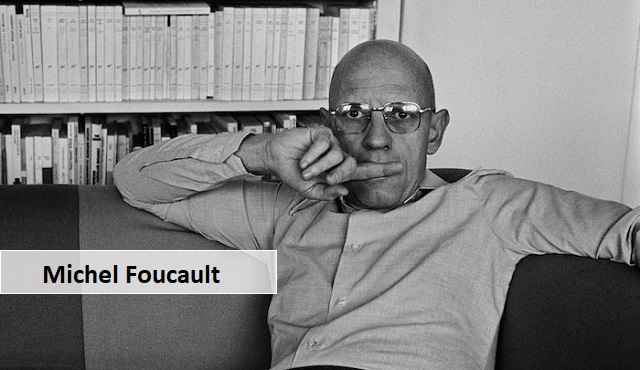Islamo-Leftism [Part 2]

Editor’s note: The following is a translation by Ibn Warraq and Robert Kerr of Michel Onfray’s L’Art d’Etre Francais (The Art of Being French, Bouquins, 2021), published here for the first time. Part 1 is here.
It was Michel Foucault who, along with a few other young philosophers of his generation, were lying in wait for the old lion to die, thereupon taking up the torch in the most brutal fashion. Although he was haloed by the structuralist success of Words and Things (1966), a book that professed to eschew History in favor of a metaphysics of structures, he had now come to tell us, thanks to the Iranian revolution, what the truth in politics would henceforth be: a return to theocracy – provided it is not Catholic, of course… In the same way that structuralism was a return to the medieval ontology of essences, in other words, an idealist counter-revolution, Islamo-leftism, which was founded on this occasion, was to be a return to pre-revolutionary theocracy, which constitutes another counter-revolution: a political one this time.
Michel Foucault’s political path was quite sinuous, though not without logic: he embraced the prevailing current of each era, by which he made an an ad hoc career! He was a communist in the early 1950s, and Althusser got him to teach at the École Normale Supérieure; then a Gaullist in the 1960s, he was a member of the ÉNA[1] jury in 1965, also working for the Fauchet university reform commission two years later, and was then offered management positions in the French education system, but his homosexuality was used against him; a leftist after May ’68, a Maoist, to be precise, he became director of the University of Vincennes; appointed to the Collège de France in November 1969, in the years that followed he backed the idea of a bloody proletarian dictatorship. In 1977, he supported the new philosophers alongside Yves Montand, Bernard Kouchner and André Glucksmann, from then on he was in good standing with the socialists. In 1978, he defended the Shiite theocracy and the political Islam of the Ayatollah Khomeini, and the whole left applauded; the last Foucault, who turned away from the socialists in the 1980s and moved closer to the neo-liberals, Mitterrand having initiated the left’s demise subsequently celebrating the great European market. Since the famous headline “Vive la crise!” in Libération (February 1984), which loudly applauded the shift to the right of the left, in other words the denial of the left, liberalism had been in fashion. Foucault died on 25 June 1984.
The grandfather of Islamo-leftism is Sartre, who was willing to do anything to ensure that the Judeo-Christian West would burn, that Western Europe, the Europe of freedoms, would be cremated in a world where Eastern Europe, the Europe of barbed wire, was confronting it, assuming that Gaullist France which he equated with fascism, would be incinerated and that a socialist, Marxist – and Muslim – Third World would then shine bright! The steeple, no; the minaret, yes. The pope, no; the ayatollah, yes. The Bible, no; the Qur’an, yes. The Sunday sermon, no; the call of the muezzin, yes. Christian anti-Judaism, no; Muslim anti-Semitism, yes. Catholic misogyny, homophobia and phallocracy, no; patriarchy, the hunting of homosexuals, Arab-Muslim sexual mutilation, yes. Crusades, no; Jihad, yes. The Cross, no; the Crescent, yes. This has become the catechism of nihilistic France. Who could have foreseen such a return of the religious?
To what does Michel Foucault’s plea for this political counter-revolution that restores the full powers of theocracy – the very opposite of democracy –as was the case before pre-1789, resemble?
The answer can be found in a series of journalistic articles that our philosopher published in the Italian daily Corriere della sera. In September 1978, he arrived in Tehran to do a journalist’s job – indeed, he would do a journalist’s job, which is quite the opposite of a philosopher’s job…
The Shah’s regime was not, of course, a democratic model, but it sought to to westernize, modernize, secularize, and industrialize the Iranian people, who lived in a traditional, custom-bound and conservative world. His political police was brutal, his army shot on sight and spilt much blood. The opposition to this regime was carried by the Shiites. If evil is on the Shah’s side, then good must be found on the other side of the barricade! The alumnus of the École normale supérieure, with a degree in philosophy, professor at the Collège de France, the adulated philosopher, arrived on scene under the pretext of pondering reality: he saw only ideas, bipartite dissertations, concepts. He did not believe what he saw; he was rather content to see what he believed.
To prepare for this trip, he had read Henry Corbin[2]. It is not certain that the reflections of this Islamologist on the nature of angels in Islam, on the divine hierarchies, on the archangelic heptad, on apophatic theology, on Avicenna’s[3] angelology or on the phenomenology of the Holy Spirit were the best preparation for seeing reality as it is. Why didn’t he simply read the Qur’an, the hadith and a biography of Mohammed!
It did not occur to the philosopher that perhaps theocracy is not the best way to install democracy in an authoritarian country. Fascinated by negativity alone, without any concern for what might follow, he sided with political Islam.
COLUMN BY
REFERENCES:
[1] École Nationale d’Administration.
[2] Henry Corbin [1903-1978] wrote about, and translated works of Shiite gnosis, figures such as Sohrawardi , Molla Sadra Shirazi , Rûzbehân Baqlî Shîrâzî and also the Sufi Ibn Arabi and his Shiite disciple Haydar Amoli.
[3] Avicenna [Ibn Sina] [980-1037], Iranian physician and philosopher.
EDITORS NOTE: This Jihad Watch column is republished with permission. ©All rights reserved.


Leave a Reply
Want to join the discussion?Feel free to contribute!